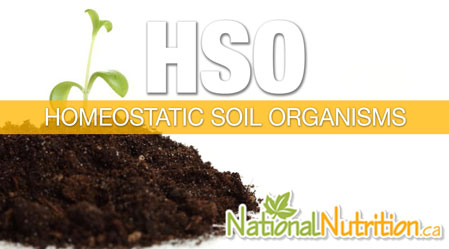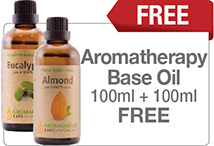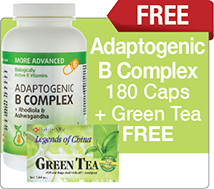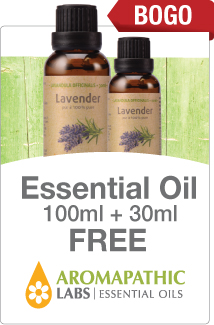
HOS offers relief for those who suffer from gas, bloating, indigetsion and more.
Homeostatic Soil Organisms
Updated Apr. 04th, 2024 | Read Time: 3 Minutes | What You Will Learn:
- Understanding What Homeostatic Soil Organisms Are
- Homeostatic Soil Organism Supplements
- See What Professionals Are Saying About HSOs
- Important Information To Consider
"Homeostatic soil organisms" (HSOs) is a registered trademark representing the particular probiotics present in Garden of Life's product called "Primal Defense". In general, these organisms are good probiotics individually, but it is not yet known how they interact or compete with one another in combination formulas. The company has done some preliminary research, but no peer-reviewed studies yet exist.
Understanding What Homeostatic Soil Organisms Are
The organisms included in Garden of Life's HSOs are listed in the chart below. Although this particular mixture is unique to this product, most of these bacteria will look familiar to you from other probiotic formulas. These organisms may interact in a new way together, but there is no peer-reviewed research supporting this idea yet. Instead, there is research on each species as follows:
Nutritional Information
| organisim breakdown chart | |
|---|---|
| organism | known effects |
| lactobacillus plantarum | · this organism is found naturally in fermenting foods and decomposing plant materials. it creates hydrogen peroxide during its digestive process to outcompete other organisms attempting to cultivate the same space. it is likely this competition that allows these bacteria to act as a protective probiotic. |
| bacillus subtilis | · these spore-forming bacteria are naturally occurring soil organisms that have long been established as beneficial probiotics. this bacterium is fungicidal, meaning it kills pathogenic fungi, and is an immunostimulant that was widely used as a treatment for gastrointestinal and urinary tract diseases prior to the introduction of antibiotics. |
| lactobacillus brevis | · this organism can be found in preserved foods such as pickles, sauerkraut, wine, and beer (although in beer it spoils the brew). it has been shown to improve human immune function, and is widely considered a beneficial probiotic. |
| bifidobacterium breve | · b. breve has been shown to inhibit e. coli and c. albicans in the human body. it can digest a wide variety of food sources, including vegetable fibre normally considered indigestible. this allows it to out-compete, and thus kill off other bacteria in the gut. |
| bifidobacterium bifidum | · this organism has been widely studied and its benefits include: the inhibition of gut pathogens, the modulation of immune responses, the production of vitamins, and the bioconversion of a number of dietary compounds into bioactive molecules. it has also been shown to reduce the expression of procarcinogenic enzymes by gut microbes. it has been most widely studied for its ability to function as an anti-diarrheal probiotic, particularly in infants. |
| lactobacillus paracasei | · this bacterium is found naturally in fermented products. it is proposed to out-compete pathogenic bacteria in the gut, with one study showing benefit in clostridium difficile infection (a very persistent pathogenic gut bacteria). there is some preliminary research on immunomodulation in mice due to colonization with these bacteria, but more research is required to make the link to humans. |
| lactobacillus salivarius | · this organism is a fast replicator frequently found in the digestive tract of many mammals. it has not been well studied, and its potential as a probiotic is just emerging in current research. there are some very interesting preliminary studies showing that l. salivarius may out compete helicobacter pylori (an organism known to cause intestinal ulcers in humans), staphylococcus spp., enterococcus spp., and e. coli, all of which are potentially pathogenic microbes. |
| lactobacillus casei | · this bacterium is naturally found to cultivate the human digestive tract. it has been shown to survive a wide variety of ph levels and complements and promotes the growth of several other probiotics. |
| bifidobacterium lactis | · this organism has been making waves in research recently because of a 2008 study that implicated it as a potential protective agent for the intestinal lining in people with celiac exposed to gluten, thus reducing the symptoms of the disease even with small exposures. |
| bifidobacterium longum | · this well-known probiotic bacterium is naturally found in the digestive tracts in humans. it is also found in high amounts in infants and likely plays a role in breast milk digestion. it has been shown to inhibit the growth of pathogenic bacteria in the gut, and to help regulate the body's immune response as well. |
| lactobacillus acidophilus | · these are one of the most well studied probiotic bacteria and have been shown to colonize the human digestive tract and out-compete pathogenic organisms. it also has immunoregulatory functions in the gut that help to regulate the entire body's immune responses. this can help to reduce autoimmune reactions. these bacteria are also required for certain nutrient production, digestion, and absorption. |
| lactobacillus rhamnosus | · a particular strain of this bacteria (l. rhamnosus gg) has been shown to effectively treat several different intestinal and genitourinary diseases caused by viral and multi-antibiotic-resistant-bacteria pathogens. the presence of these bacteria in the gut is also currently being studied for a potential role in the production of neurotransmitters that reduce anxiety. |
Many of these strains are also found in the vaginal flora of women, where they can compete with pathogens such as C. albicans, the organism responsible for vaginal yeast infections. Interestingly, the term "soil organism" doesn't seem to apply to many of the bacteria listed above. Since humans no longer defecate in the soil, many of these organisms are found solely in the human body.
Homeostatic Soil Organism Supplements
Because "homeostatic soil organisms" are a proprietary blend of probiotics, without listed dosages of each, it is impossible to recommend a dosage. Because of this limitation, HSOs should be supplemented according to the manufacturer's suggested dosing.
See What Professionals Are Saying About HSOs
Dr. Katy, N.D. states: I am always suspicious of proprietary formulas, particularly when they are trademarked with a market-savvy name and only researched by the company that produced them. Of course, having worked in the research community, I understand the limitations of finding unbiased research grants for new products. Depending on the dosages in this proprietary "HSO" mixture, the bacteria being used are intriguing, albeit most of them aren't soil-based organisms. This product superficially appears to be on the cutting edge of probiotic research. I do wish that there was more information on how these microbes interact with one another when supplemented together, but individually, each does have research backing up its use as a beneficial probiotic. The wide variety of bacteria used, in theory, allows for greater efficacy and more likelihood of seeing beneficial digestive, anti-infectious, and immune results. Of course, we never know what the actual effects will be until studies are performed in human trials. I have seen products that I thought would theoretically be perfect treatments, turn out to be detrimental when studied. Because of this, I would like to see more research before I jump on the HSO bandwagon. I am also not comfortable recommending a probiotic without knowing the dosage of each bacterium, as insufficient dosage will eliminate any beneficial effects. On the other hand, I can tell you that I am very interested to see what comes of further research.
Important Information To Consider
Because of the spore-forming tendency of some of the bacteria in the HSO mixture, there is some concern about the long-term effects of supplementation. There is a possibility that spores may continue in the system even after supplementation is stopped and that a secondary, unintended growth period, or "bloom" may occur later on when these spores develop. There has not been sufficient long-term study to decide either way. There is also no information on dosages of each bacterium, so it is impossible to know whether dosages are sufficient to even have a physiologic effect. Immunocompromised individuals should use caution when supplementing any probiotics to prevent the risk of overgrowth.






















I have read your info and am very interested in this subject.
I am currently reading a book and he mentions Hemostatic soil Organisms and the positive effect and healing it has had. I have been diagnosed with H.Pylori 3 years ago. I took the triple therapy drugs, I reacted and stopped the meds then Dr recommended trying the quadruple therapy, to which I again reacted and refrained from continuing. I did my own research on eradicating this nasty Gut Bacteria and uncertain which actually DID kill the H.Pylori my list of attempted natural methods is as such:
Mastic gum
Manuka honey
Oregano oil
Effamol capsules
Coconut oil
Probiotics
Diet of;
Pistachio nuts
Broccoli
Kimchi
Raw and cooked leafy greens
Cabbage
Cabbage juice
Apple cider vinegar
After three weeks of all the above
I went to the hospital to perform the blow test ( test the air from your gut)
Test came back negative
However, if I get off the strict diet or introduce meat, (chicken, beef, fish or the worst one if all, Pork and sugar; then it all starts again)
The heartburn
The stomach ache
The weakness
Dizziness
Diarrhea
Nausea
Bloating
Indigestion
Thank you for the opportunity to write and share
Elena Childs